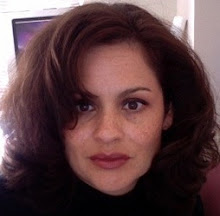Online Underwater First! Project SeaCAMEL: Live Broadcasts November 12 - 14
Marine Science Classes from the Aquarius Habitat
KEY LARGO, Fla., Nov. 8 /PRNewswire-USNewswire/ -- Distance learning
goes to the extreme November 12 - 14, when Project SeaCAMEL aquanauts go
live with high tech marine science classes broadcast from Aquarius, the
world's only undersea research station.
Live action coral reef science will be a click away for students and
ocean enthusiasts around the world via satellite and the Internet from
Conch Reef, located 4 miles off Key Largo and 60-feet beneath the sea in
the Florida Keys National Marine Sanctuary.
The mission is the first in a series of online sea-to-shore educational
programs sponsored by the Maryland-based Khaled bin Sultan Living Oceans
Foundation (http://www.seacamel.livingoceansfoundation.org ), a non-profit
organization focusing on ocean research and conservation.
The university-level science experiments using high-tech undersea tools
to collect data will also have broad appeal to younger audiences. Numerous
schools, museums, and aquariums across the country, in Mexico and Great
Britain are expected to participate. A curriculum for 8th-12th-graders is
also available online from project partner Immersion Presents
(http://www.immersionpresents.org ).
Support for the live broadcasts will be provided by Media Arts, Inc.
(http://www.mediarts.com).
Six live webcasts begin airing Monday, November 12:
http://www.seacamel.livingoceansfoundation.org and http://www.uncw.edu/aquarius.
Class Schedule:
Monday 12 Nov, 2-3 PM: Intro to the Aquarius Reef Base
Monday 12 Nov, 7-8 PM: The Reef at Night
Tuesday 13 Nov, 11-12 Noon: Reefs under Siege
Tuesday 13 Nov, 2-3 PM: Sponges: the Reef's Filters
Wednesday 14 Nov, 11-12 Noon: The Boundary Layers of the Reef
Wednesday 14 Nov, 2-3 PM: Aquarius as an Artificial Reef
In the "Reefs under Siege" class, students will learn about the basic
biology of corals and the threats reefs are facing worldwide from climate
change and human activities. The aquanauts will assess the reef's health by
measuring the percentage of corals covering the sea floor, and will use
sophisticated equipment to evaluate how corals perform under severe storm
conditions.
During the last broadcast, Michael Crockett, a senior from Gloucester
High School in Gloucester, Va., will play a unique role when he sends
online commands to an underwater robotic fish, Fetch1. This will be the
first-ever attempt to control a free-swimming robotic vehicle over the
Internet.
The Project SeaCAMEL aquanaut team includes: Mark Patterson, Virginia
Institute of Marine Science; Living Oceans Executive Director Philip
Renaud, USN (ret); Chief Project Scientist Annelise Hagan; videographer DJ
Roller and Aquarius crewmembers Craig Cooper and Jim Buckley.
Aquarius is owned by the National Oceanic and Atmospheric
Administration (NOAA) and managed by the University of North Carolina,
Wilmington.
Distribution Details:
Commodity Internet
Internet2
Multicast Address: 233.53.226.224 port 4424
Satellite
Satellite: AMC-3
Location: 87 Degrees West
Receive Polarity: Vertical
Receive Frequency: 12,064 MHz
L-Band: 1,314 MHz
Symbol Rate: 6.500 MS/s
FEC: 2/3
English Channel (Service): 34
Media Contacts: For more information, and to schedule advance and live
underwater interviews with the Aquanauts:
Terri Taylor
Project SeaCAMEL
412-512-9292
zeolite@verizon.net
Dr. Ellen Prager
Chief Scientist, Aquarius Reef Base
NURC/UNCW
Ph 305.451.0233 ext 206
Related Links:
http://www.vims.edu/events/
http://www.livingoceansfoundation.org/
http://www.uncw.edu/aquarius/
Project SeaCAMEL Goes Live November 12-14!
http://www.seacamel.livingoceansfoundation.org
Subscribe to:
Post Comments (Atom)

0 comments:
Post a Comment